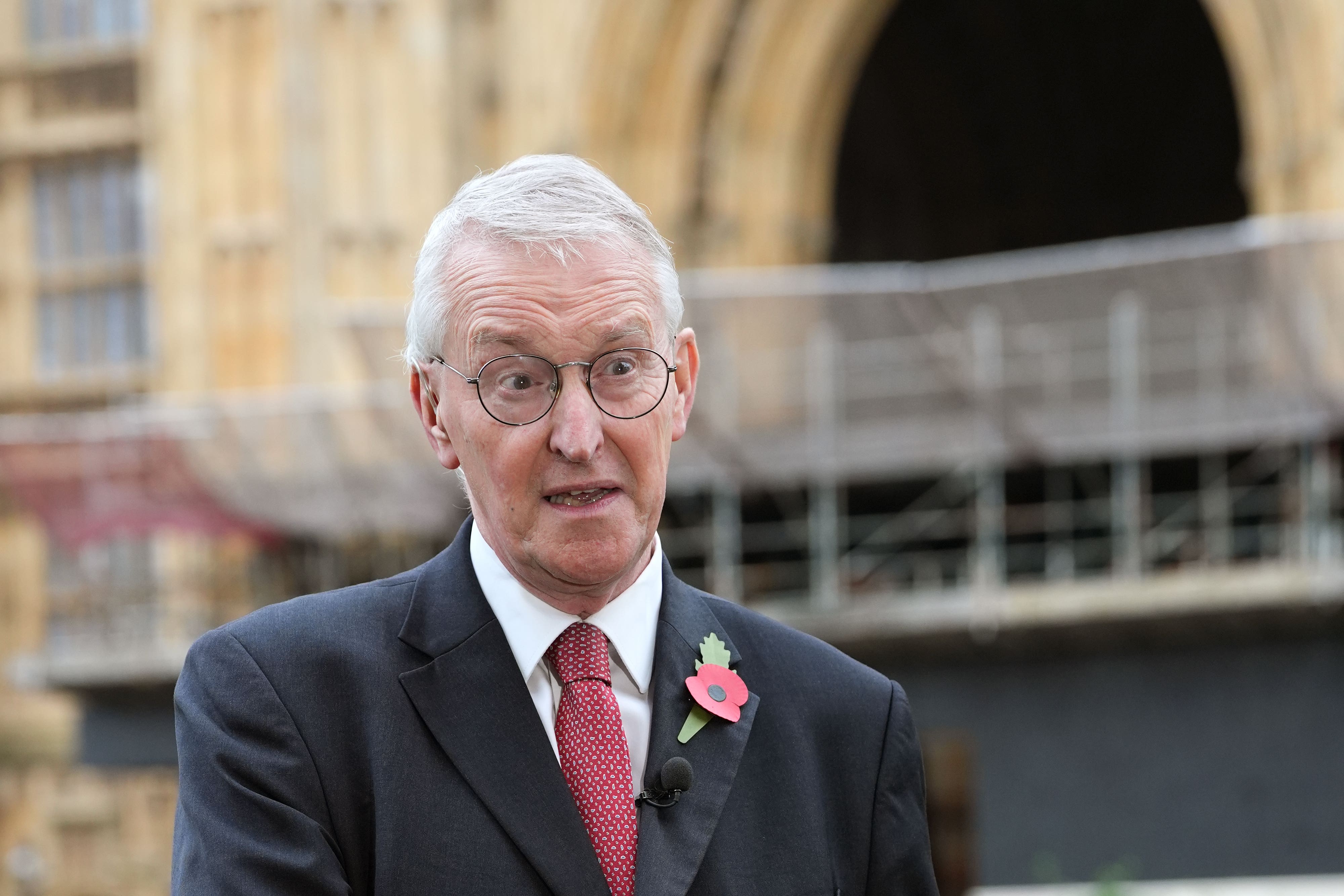Stormont vote process on post-Brexit arrangements triggered by NI Secretary
Assembly Speaker Edwin Poots has notified the First Minister and deputy First Minister that the democratic consent process has begun.

Your support helps us to tell the story
From reproductive rights to climate change to Big Tech, The Independent is on the ground when the story is developing. Whether it's investigating the financials of Elon Musk's pro-Trump PAC or producing our latest documentary, 'The A Word', which shines a light on the American women fighting for reproductive rights, we know how important it is to parse out the facts from the messaging.
At such a critical moment in US history, we need reporters on the ground. Your donation allows us to keep sending journalists to speak to both sides of the story.
The Independent is trusted by Americans across the entire political spectrum. And unlike many other quality news outlets, we choose not to lock Americans out of our reporting and analysis with paywalls. We believe quality journalism should be available to everyone, paid for by those who can afford it.
Your support makes all the difference.A process allowing Stormont Assembly to vote on whether to continue post-Brexit trading arrangements has been triggered by the Northern Ireland Secretary.
Hilary Benn sent a letter to the Speaker of the Assembly on Thursday asking First Minister Michelle O’Neill and deputy First Minister Emma Little-Pengelly to table a motion by the end of November.
The vote must be held on Articles 5 to 10 of the Windsor Framework, which underpins the EU trade laws in force in Northern Ireland, before they expire.
As I indicated in my recent conference speech in September, we will vote against the continued application of the framework
These have proved contentious, with unionists arguing that they threaten Northern Ireland’s place in the United Kingdom.
DUP leader Gavin Robinson welcomed the beginning of the vote process and said his party would vote against keeping the post-Brexit rules.
“As I indicated in my recent conference speech in September, we will vote against the continued application of the framework,” he said.
“I expect all Assembly members from other pro-Union parties who value the Union to join with us and do likewise.”
The democratic consent process was a key part of the Brexit deal, giving elected representatives in Northern Ireland a say on the trade arrangements struck after years of EU-UK negotiations.
Unlike other votes on contentious issues at Stormont, it does not require cross community support to pass.
If it is voted through with a simple majority, the protocols are extended for four years and the Government is obliged to hold a review of how the arrangements are working.
If it wins the support of a majority of unionists and a majority of nationalists, then it is extended for eight years.
Assembly speaker Edwin Poots said that if the Executive leadership do table the motion, they must also provide explanatory material.
No one else can table a democratic consent motion in November, but if Ms O’Neill and Ms Little-Pengelly do not table such a motion, any MLA can do so between December 1 to 6 inclusive.
“Should this happen, the Secretary of State must take reasonable steps to provide members with such explanatory materials as it is reasonable to provide in order to assist them when deciding the question,” Mr Poots said.
If a motion for consent has been tabled by either the First Minister and deputy First Minister, or a member, but has not been decided before Tuesday December 17 2024, the Assembly must sit on Tuesday December 17 2024 to decide the motion
“The Business Committee will schedule any motion for a consent resolution.
“If a motion for consent has been tabled by either the First Minister and deputy First Minister, or a member, but has not been decided before Tuesday December 17 2024, the Assembly must sit on Tuesday December 17 2024 to decide the motion.
“However, I would prefer that any such motion is debated at a scheduled sitting before this date.”
Mr Robinson said if the vote is in favour of keeping the trading arrangements, the DUP would continue to oppose them through the review process.
“As a consequence of the failures and folly of then-prime minister Boris Johnson, the Assembly vote has been deliberately designed to drive a coach and horses through the cross-community consent principle which has been at the very heart of all political progress in Northern Ireland.
“The basis of the Belfast Agreement and all subsequent agreements has been the requirement for significant decisions to command the support of both communities in Northern Ireland, yet this forthcoming vote will ignore the fundamental tenant of consent.
“It is an aversion to the protections attached to every other issue of significance at Stormont.
“Drawing upon the new mechanisms at our disposal, we intend to continue our campaign through the inbuilt review which will be triggered immediately thereafter.”